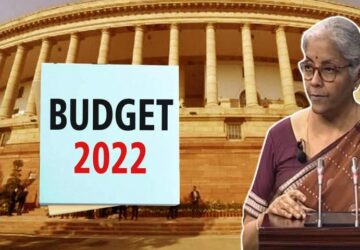 Textile industry plays a significant role in the economy contributing to over 13 percent of the industrial output, over 2 percent to the GDP of India. The industry employed more than 4.5 crore citizens and contributed ~15 percent to the export earnings of India in FY 19. In addition to this, the support from the government has aided the industries effort to grow and contribute further. Government has been taking measures like reshuffling of GST rates, allowing refund to accumulated taxes in case of textiles etc. With the bold reforms taken by government in the recent past including tax reforms, Skill India mission, RoSCTL Scheme for textile sector to defray / rebate the embedded taxes, etc. has helped the industry.
Textile industry plays a significant role in the economy contributing to over 13 percent of the industrial output, over 2 percent to the GDP of India. The industry employed more than 4.5 crore citizens and contributed ~15 percent to the export earnings of India in FY 19. In addition to this, the support from the government has aided the industries effort to grow and contribute further. Government has been taking measures like reshuffling of GST rates, allowing refund to accumulated taxes in case of textiles etc. With the bold reforms taken by government in the recent past including tax reforms, Skill India mission, RoSCTL Scheme for textile sector to defray / rebate the embedded taxes, etc. has helped the industry.
The budget presented recently by Union Finance Minister, Nirmala Sitharaman is a pro-consumption budget. Government’s thrust on creating better infrastructure, building strategic highways like Chennai – Bangalore, Delhi – Mumbai will boost the sector and further create more demand and employment. Creating National logistics policy will be beneficial as it will bring in efficiency and reduce the turnaround time of the vehicle.
Further, she announced a National Technical Textiles Mission, which is expected to give thrust to production of a wide variety of textiles used in sectors such as healthcare, infrastructure, automobiles, defence, and agriculture. The rs. 1,480 cr mission, to be implemented from 2020-2021 to 2023- 2024, aims at positioning India as a global leader in technical textiles. In the budget, Government has provided stimulus to the economy in form of liquidity and consumption related interventions in the backdrop of visibly slowing global economic growth, including India. It is very encouraging to note that the budget clearly laid out the government’s roadmap to position the economy for future sustainable growth. It is a well-balanced budget addressing many challenges and opportunities across sectors to give fillip to economic revival. Overall, in this budget, the government is trying to simplify the existing complicated processes like GST, income tax filing and bring in efficiency and growth.
 Textile industry plays a significant role in the economy contributing to over 13 percent of the industrial output, over 2 percent to the GDP of India. The industry employed more than 4.5 crore citizens and contributed ~15 percent to the export earnings of India in FY 19. In addition to this, the support from the government has aided the industries effort to grow and contribute further. Government has been taking measures like reshuffling of GST rates, allowing refund to accumulated taxes in case of textiles etc. With the bold reforms taken by government in the recent past including tax reforms, Skill India mission, RoSCTL Scheme for textile sector to defray / rebate the embedded taxes, etc. has helped the industry.
Textile industry plays a significant role in the economy contributing to over 13 percent of the industrial output, over 2 percent to the GDP of India. The industry employed more than 4.5 crore citizens and contributed ~15 percent to the export earnings of India in FY 19. In addition to this, the support from the government has aided the industries effort to grow and contribute further. Government has been taking measures like reshuffling of GST rates, allowing refund to accumulated taxes in case of textiles etc. With the bold reforms taken by government in the recent past including tax reforms, Skill India mission, RoSCTL Scheme for textile sector to defray / rebate the embedded taxes, etc. has helped the industry.












